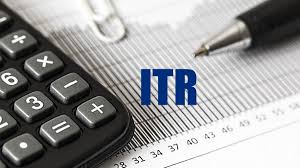
Now that you know what an income tax return is, let us take a look at the list of people as well as enterprises that are mandated by law to file income tax return every financial year.
- Any individual who is less than 59 years and has an annual income of more than Rs. 2.5 Lakhs should file an IT. The exemption limit for senior citizens between 60 to 70 years of age is Rs. 3 Lakhs. For super senior citizens (80 years and above), the limit is Rs. 5 Lakhs. Income calculation should be done without allowing deductions specified under Section 10 of the Income Tax Act.
- A registered company with yearly income, even if it has not made any profit during the period
- An individual who wants to claim a refund on surplus income tax or tax that was deducted from the annual income.
- An individual having an asset or any other financial interest outside of the country.
- A company out of India with treaty benefits on transactions made within the country.
- NRIs who earn above the basic yearly exemption limit of Rs 2.5lakh.
What Documents do you Need to File ITR?
When you start the process of filing your income tax return, apart from your salary slips, bank savings account passbook, Aadhar card and PAN card, there are a few other documents that you will require to ease your tax filing process:
- Form 16: It is provided by your employer and contains details of the salary paid by them to you and the Tax deducted at source (TDS) on it.
- Form 16A: It contains details on TDS deducted on interest received from deposits such as fixed or recurring bank deposit.
- Form 16B: If you sell a property, TDS applies on the amount received from you by the buyer, the details of which are present in this form.
- Form 16C: TDS details of the rent paid by your tenant to you are recorded here.
- Form 26AS: This form represents your comprehensive statement of taxes against the PAN number. It includes TDS by your employer, bank or any other organization that has made a payment to you. Advance taxes or self-assessment taxes paid, proof of tax saving investments such as deductions as prescribed from Section 80C to 80U including life insurance policy or a term plan are also listed.



